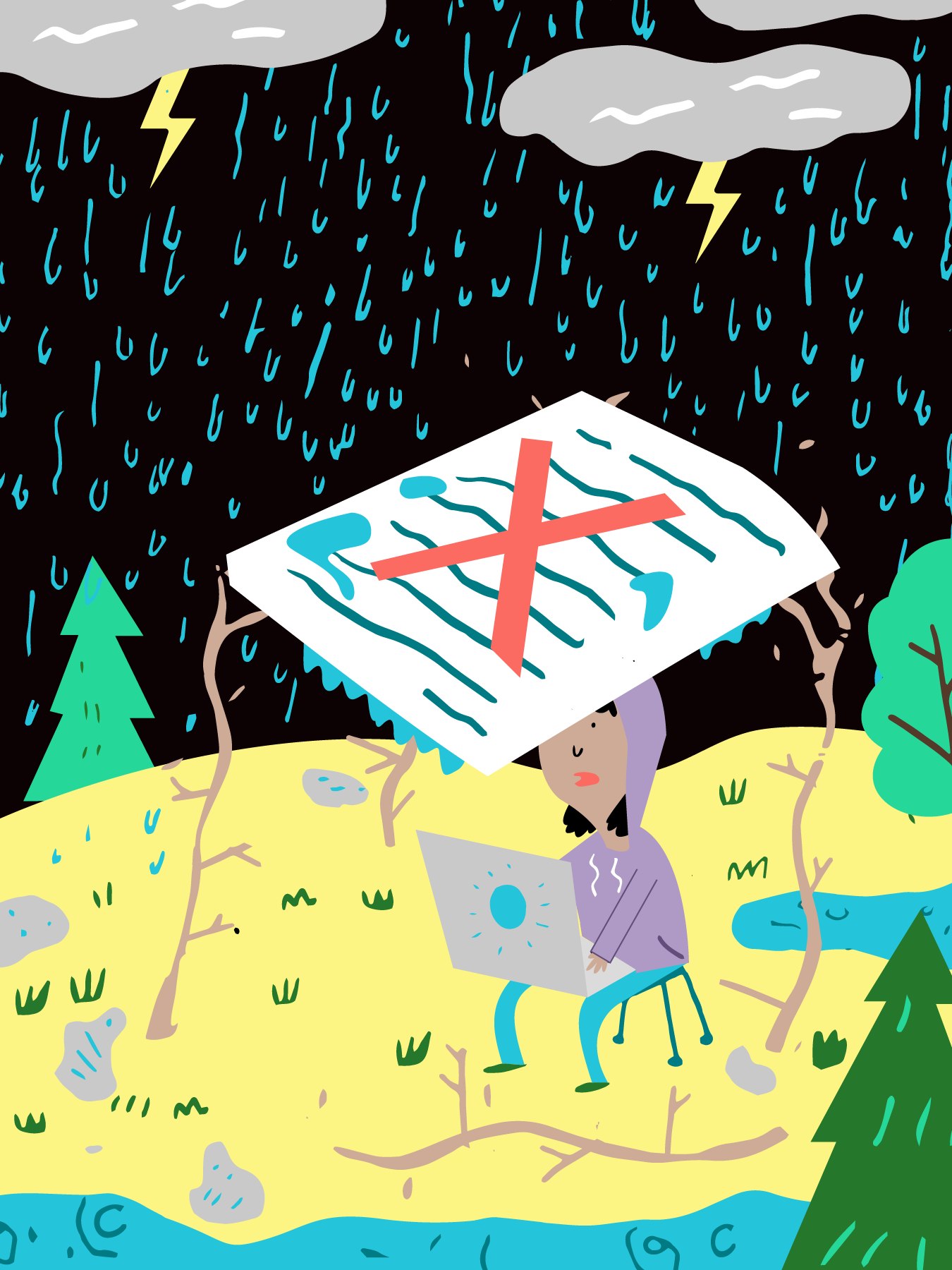We all know the story of JK Rowling’s numerous rejections. The aspirational author was not only turned away by 12 publishers when she pitched the series’ synopsis for Harry Potter but she’s since posted the no-thank-you-very-much letters she received in response to her first novel writing as her alter ego, Robert Galbraith, on Twitter, in an effort to comfort aspiring authors.

‘Consider every rejection as an opportunity…’ Illustration by Josh Quick
Rowling isn’t coy about her rejections, and neither were other famed creatives—such as Herman Melville, Louisa May Alcott, and F. Scott Fitzgerald—who have all admittedly experienced the cringe-y song and dance of rejection. I gather they came to realize that, much like morning breath, indigestion, and death, rejection is simply an inevitable nuance of life.
Prior to pursuing a career in writing, I was no stranger to rejection (shout-out to the boy who said “no thanks” to dancing with me at the Youth Club dance in high school), but when someone dismisses your beloved brain child, it really does add insult to injury. What’s worse, if you’re having a rough go of it, a few ill-timed rejections can feel like a SIGN FROM THE HEAVENS that you should cut your losses and take a job as a dog walker. At times, I’ve even found that cumulative rejections feed into my sense of imposter syndrome.
Need a way to better cope with your rejection? I’ve got ten.
It’s not you, it’s them
Creative industries are hugely competitive, and as such, the big kahuna you sent your work to likely receives a steady stream of pitches and submissions daily. It’s hard not to take it personally when someone turns away your work, but seriously, it’s not personal.
It’s not them, it’s you
Sometimes your voice, tone, or style of work simply doesn’t jive with the outlet you’re trying to place it with. Keep in mind that taste in creative work is often subjective—just because your idea of strong work doesn’t align with someone else’s idea of strong work doesn’t (necessarily) mean it’s not strong work. So, chin up, friend, and consider pitching elsewhere.
It wasn’t meant to be, according to your mom and The Universe
Some may call this one a cop out; I call it a *cope* out. In any event, arguing with the divine plan of The Universe is futile. So is arguing with the unparalleled intuition of your mom, so if she quips something along the lines of “everything happens for a reason,” you should probably listen to her.
Now you have a reason to use the ‘ShareYourRejection’ hashtag on Twitter!
And there is true catharsis in communal hashtagging.
Your rejection reminds you that you are ALIVE
Have you ever had a hangover that was so bad it reminded you of your own mortality? Rejection is kind of like a bad hangover. It feels like the worst thing in the world for a bit, but then you chug some water, have a snack, binge watch The Office in bed, and eventually you feel better. A bad hangover probably won’t scar you from ever having another drink again, just like your rejection shouldn’t keep you from putting your work out there again.
It was good practice
I think it’s safe to say that all creative work stands to benefit from practice, so whether it’s a pitch that’s been rejected or a 2,500-word essay WRITTEN IN FULL, consider every rejection as an opportunity to hone your craft.
Your rejection makes you stronger and keeps you humble
You are now better equipped to deal with future rejections, so there’s that.
And it makes you more creative, apparently
According to a team of researchers at Johns Hopkins University, feelings of rejection can actually help us access our more creative selves. They did a study on it and everything.
AT LEAST THEY BOTHERED TO REPLY
If you’ve managed to sucker a reply out of an editor, that in itself is a success. The very fact that this (probably very busy) person has taken the time to politely decline means that you have been taken seriously by someone who has enough clout for that to mean something.
You’ll always have dog walking
Also, I hear cat-sitting is pretty lucrative.
Craving more content for dealing with your rejection? We’ve got you.

